5 Powerful Creatine Benefits, Its Types, And Side Effects
Fuel your muscles with the energy they need without risking the adverse effects of the supplement.
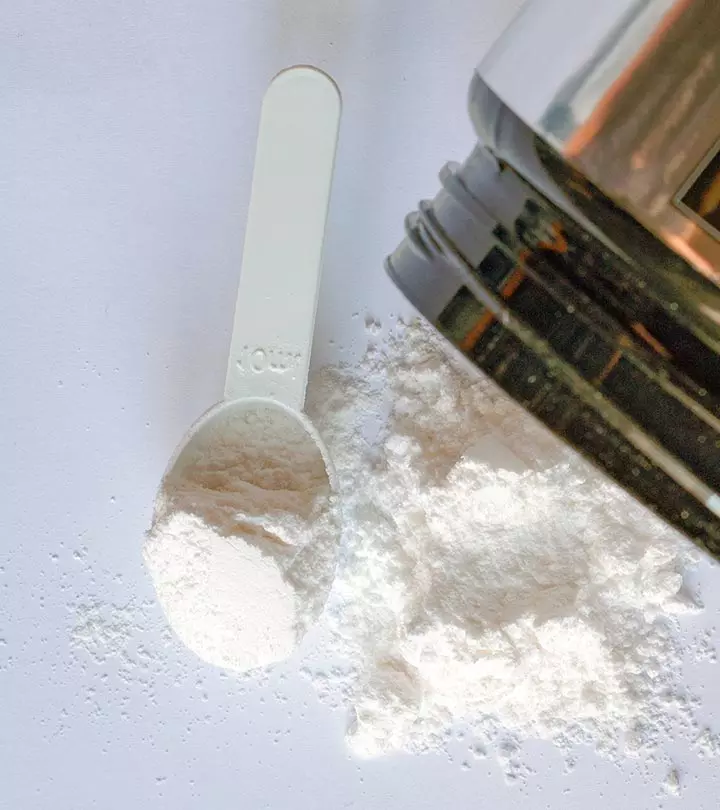
Image: Shutterstock
Creatine is the most effective and popular nutritional supplement that helps build muscle, improves high-intensity exercise capacity, and enhances strength (1). This sports supplement also boosts athletic performance. The benefits of creatine are many. It helps improve energy levels, aids in the treatment of Parkinson’s disease, regulates blood sugar levels, and supports brain health. This article explores the health benefits and possible side effects of creatine. Keep reading.
In This Article
What Is Creatine? How Does It Work?
Creatine is an amino acid that is located mostly in your body’s muscles. Your body converts the creatine you ingest into phosphocreatine (also called creatine phosphate) and stores it in your muscles for use for energy.
Your liver, pancreas, and kidneys also make creatine (2). Most people also prefer taking the supplement, which is found to have an outstanding safety profile (1).
There are various types of creatine, but the most researched and popular ones include – creatine monohydrate, creatine ethyl ester, buffered creatine, creatine hydrochloride, liquid creatine, and creatine magnesium chelate. We will get into their details in a little while.
How creatine works in the body is quite simple. Your body contains ATP (adenosine triphosphate), which is the energy currency of your life. It is a molecule that stores the energy you need for your regular activities.
As you expend energy, ATP is depleted. This depleted ATP produces ADP (adenosine diphosphate), which is another organic compound that contains adenosine and two phosphate groups. With the addition of another phosphate group (like creatine phosphate), ADP is converted into ATP, offering more energy (3).
This mechanism of creatine offers some incredible benefits.
What Benefits Does Creatine Offer?
1. Boosts Muscle Growth
Ninety five percent of the body’s creatine stores are found in the skeletal muscles (4). Post-exercise ingestion of creatine was also found to enhance regenerative responses. It can prevent severe muscle damage and improve the recovery process.
Creatine is formed by three amino acids – L arginine, glycine, and L- methionine . Arginine is a compound that boosts the production of nitric oxide in the body. Nitric oxide was found to improve the contractility of the skeletal muscle. Reports also suggest that creatine directly impacts muscle protein synthesis, aiding muscle mass and metabolism (5).
Creatine also boosts the body’s capacity for high-intensity exercise, allowing one to train for longer periods in the gym. This invariably boosts muscle mass over a period (6).
2. Improves Energy Levels
As we saw, creatine supplements enhance your muscles’ phosphocreatine stores (7). Phosphocreatine promotes the formation of new ATP, thereby further boosting energy levels. It helps in the transformation of ADP to ATP during high bursts of energy movements, leading to increased availability of energy (8).
This way, creatine also boosts your high-intensity exercise performance (9).
3. May Help Treat Parkinson’s Disease
About 5% of the creatine stores are found in the brain. Parkinson’s is associated with a steep decline in dopamine levels, leading to the death of brain cells. This causes tremors, speech impairments, and even permanent loss of muscle function (10).
Creatine may help as it was found to prevent the drop in dopamine levels by as much as 90% (11).
Combining creatine with weight training had also improved strength and daily function in Parkinson’s patients as compared to strength training alone (12).
4. Boosts Brain Health
Creatine was found to boost brain health, more so in aging and stressed individuals. Intake of oral creatine can improve short-term memory and reasoning in already healthy individuals (13). Also, creatine has been recorded as being safe for such individuals. Taking 15 – 20 grams of creatine is generally safe in the form of creatine monohydrate.
In another study, creatine supplementation was found to improve brain performance (14). Evidence also suggests that increased brain creatine levels may reduce the severity of traumatic brain injury (15). Though this evidence is limited to just a few individuals, more research is expected.
Acute oral supplementation of creatine also reduces mental fatigue. The amino acid also has neuroprotective effects against amyloid beta, which is a peptide involved in Alzheimer’s disease. Studies on healthy individuals also showed the positive effects of creatine on short-term memory and spatial memory (16).
5. Helps Regulate Blood Sugar Levels
Studies show that creatine supplementation, along with regular exercise, can improve blood sugar levels in type 2 diabetes patients. It might achieve this by regulating the function of GLUT-4, which is a protein involved in glucose transportation (17).
A Brazilian study states that creatine supplementation, when combined with aerobic training, can improve glucose tolerance in diabetics (18).
Creatine also has similar glucose-lowering effects as metformin, which is a medication used for type 2 diabetes (19). Though these results are short-term, more studies are warranted to understand creatine’s long-term effects.
These are the major benefits of creatine. As we discussed earlier, we have different types of creatine. Which one should you choose for the maximum benefits?
What Are The Types Of Creatine To Choose From?
Creatine is one of the most widely studied supplements in the world. Astonishingly enough, it has managed to garner an incredible safety profile. Different types of creatine exist in the marketplace. They are:
Creatine Monohydrate
This is the most common type of creatine available. This also is the type that is most researched on. It is made of a creatine molecule and a water molecule. Creatine monohydrate is 90% creatine by weight. A large body of research suggests creatine is safe to consume.
Creatine Ethyl Ester
Some manufacturers claim this is better absorbed in the body than creatine monohydrate. But it may not be as efficient in increasing creatine content in the blood and muscles (20).
Creatine Hydrochloride
Creatine hydrochloride is touted to have superior solubility when compared to the other types. Some experts speculate that due to its solubility, lower doses can be used for equal results. One study shows how this type is 30 times more soluble than creatine monohydrate (21).
Liquid Creatine
This is creatine in an already dissolved form, unlike most creatine supplements that come in a powdered form. But research shows liquid creatine (also called creatine serum) is not as efficient as its powdered counterparts (22).
Buffered Creatine
This is creatine with an added alkaline powder, which supposedly results in a stable form of creatine. Some manufacturers say this stable creatine doesn’t cause cramping or bloating, which are the only known (and less common) side effects of creatine. But research shows buffered creatine is no way superior to other forms in terms of effectiveness (23).
Creatine Magnesium Chelate
This is creatine with chelated magnesium – magnesium is attached to the creatine molecule. But this creatine type showed similar results as the monohydrate form (24).
These are the most popular types of creatine available. But we recommend creatine monohydrate as it has a ton of research to back its effectiveness and safety.
But hold on – does this mean creatine (or creatine monohydrate) has no side effects at all?
What Are The Possible Side Effects Of Creatine?
Issues With Pregnancy And Breastfeeding
There is not enough information in this regard. Stay on the safe side and avoid use.
May Aggravate Bipolar Disorder
People with bipolar disorder may find their symptoms aggravating if they take creatine. Hence, they should stay away from it (25).
May Aggravate Kidney Disease
Though research is limited, creatine may cause issues in people with kidney disease (or a history of the disease). Hence, avoid use.
Other Side Effects
Creatine may cause nausea, diarrhea, stomach pain, and muscle cramping in some individuals. You can split the dose across your day and see if it helps. If symptoms persist, stop its use and consult your doctor.
The ideal dosage for regular maintenance of your health is 2-10 grams. You can start small and work your way up. If you are into rigorous workouts or athletic training, you can take up to 20 grams a day (26).
If you want to take creatine regularly for health maintenance, you can stick to 5 grams a day.
Also consume at least 3-4 liters of water if you take the supplement.
Our body needs about 1-3 grams of creatine everyday. Half of it is made in the body and the rest is supplied through diet. Red meat and fish are the sources of creatine.
Athletes and bodybuilders may need creatine supplement for increased energy production, improve athletic performance and allow them to train harder.
Creatine is an amino acid located in the body’s muscles and is a popular nutritional supplement. The benefits of creatine are many. It may boost muscle growth, improve energy levels, enhance brain health, and regulate blood sugar levels. This amino acid is available in different types. However, intake of creatine may cause side effects in some people. For example, it may aggravate bipolar disorder and cause kidney stones. In addition, there is no safety information on the usage of this supplement in pregnant and breastfeeding mothers. Hence, consult your doctor before consuming creatine supplements.
Frequently Asked Questions
Is creatine good for you every day?
Yes. Anecdotal evidence suggests that taking up to 25 g of creatine daily is safe for consumption.
Will creatine make you fat?
No. It has been shown that creatine supplementation had no effect on the mean percent of body fat and caloric intake of subjects. However, any weight gain due to creatine supplementation may be due to water retention (27).
Which is better: creatine or protein?
This depends on your fitness goals. Adding creatine to your daily diet gives your muscles more energy and makes them appear bigger as the supplement promotes water retention. The amino acids in protein, on the other hand, are essential for your muscles to bulk up and recover after training.
Does creatine increase testosterone?
No. While creatine does not affect serum testosterone levels, it may alter levels of dihydrotestosterone, a biologically more active androgen (28).
Key Takeaways
- Many athletes and fitness enthusiasts take creatine supplements before or after work out to boost their performance, preserve more energy, and aid muscle recovery.
- Creatine supplements have a high safety profile, and their health benefits include improved muscle growth, better brain function, and blood sugar regulation.
- Possible but uncommon side effects of creatine include nausea, muscle cramping, diarrhea, and stomach ache.
References
- “International society of sports nutrition position…” Journal of the International Society of Sports Nutrition, US National Library of Medicine.
- “Nutrition and traumatic brain injury: improving acute…” National Center for Biotechnology Information.
- “Creatine supplementation enhances anaerobic…” Molecular and Cellular Biochemistry, US National Library of Medicine.
- “Creatine supplementation with specific…” Journal of the International Society of Sports Nutrition, US National Library of Medicine.
- “Creatine supplementation and skeletal muscle…” Current Protein & Peptide Science, US National Library of Medicine.
- “Effect of creatine supplementation during resistance…” Open Access Journal of Sports Medicine, US National Library of Medicine.
- “Differential response of muscle…” Acta physiologica Scandinavica, US National Library of Medicine.
- “Beyond muscles: The untapped potential of creatine” International Immunopharmacology, US National Library of Medicine.
- “Effects of creatine supplementation on performance…” Molecular and Cellular Biochemistry, US National Library of Medicine.
- “Parkinson’s disease…” Journal of Neurology, Neurosurgery, and Psychiatry, US National Library of Medicine.
- “Creatine and cyclocreatine attenuate…” Experimental Neurology, US National Library of Medicine.
- “Resistance training with creatine…” Neurorehabilitation and Neural Repair, US National Library of Medicine.
- “Effects of creatine supplementation on cognitive…” Experimental gerontology, US National Library of Medicine.
- “Oral creatine monohydrate supplementation…” The Royal Society, US National Library of Medicine.
- “Beyond muscle: the effects of creatine supplementation on…” European Journal of Sport Science, US National Library of Medicine.
- “Effects of creatine supplementation…” Medical Journal of the Islamic Republic of Iran, US National Library of Medicine.
- “Creatine in type 2 diabetes…” Medicine and Science in Sports and Exercise, US National Library of Medicine.
- “Effects of creatine supplementation on…” Amino Acids, US National Library of Medicine.
- “Comparison of antihyperglycemic effects of…” Clinical and Investigative Medicine, US National Library of Medicine.
- “The effects of creatine ethyl ester supplementation…” Journal of the International Society of Sports Nutrition, US National Library of Medicine.
- “Physiochemical characterization of creatine…” Journal of Dietary Supplements, US National Library of Medicine.
- “Creatine serum is not as effective…” Journal of Strength and Conditioning Research, US National Library of Medicine.
- “A buffered form of creatine does not…” Journal of the International Society of Sports Nutrition, US National Library of Medicine.
- “Mg2+-creatine chelate and a low-dose…” Journal of Strength and Conditioning Research, US National Library of Medicine.
- Creatine metabolism and psychiatric disorders: Does creatine supplementation have therapeutic value?
- Creatine supplementation with specific view to exercise/sports performance: an update
- Creatine monohydrate supplementation on body weight and percent body fatJournal of strength and conditioning research.
- Three weeks of creatine monohydrate supplementation affects dihydrotestosterone to testosterone ratio in college-aged rugby playersClinical journal of sport medicine
Read full bio of Avantii Deshpaande
Read full bio of Ravi Teja Tadimalla


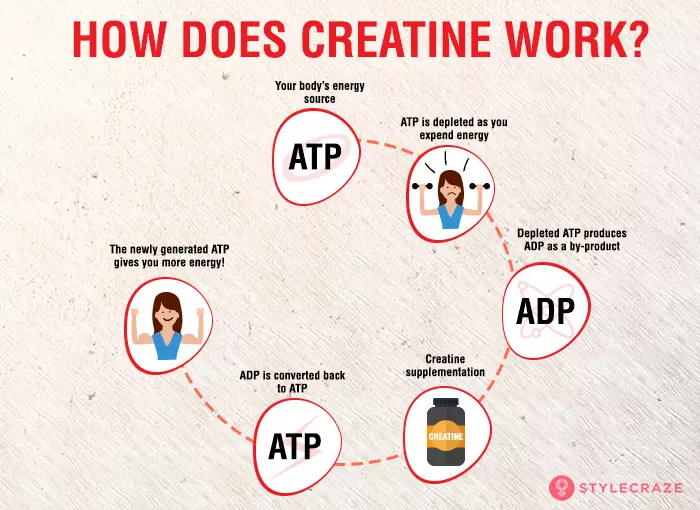





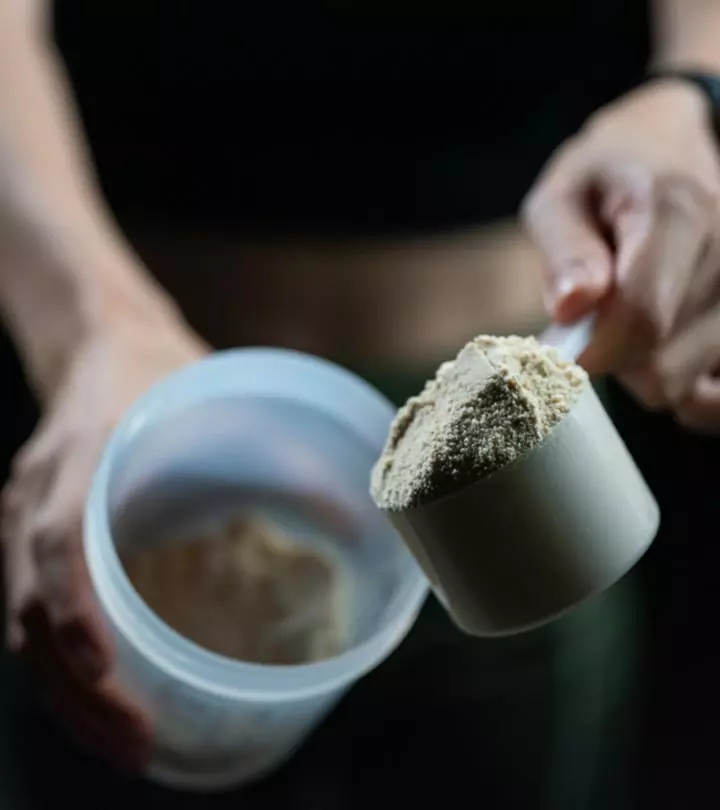
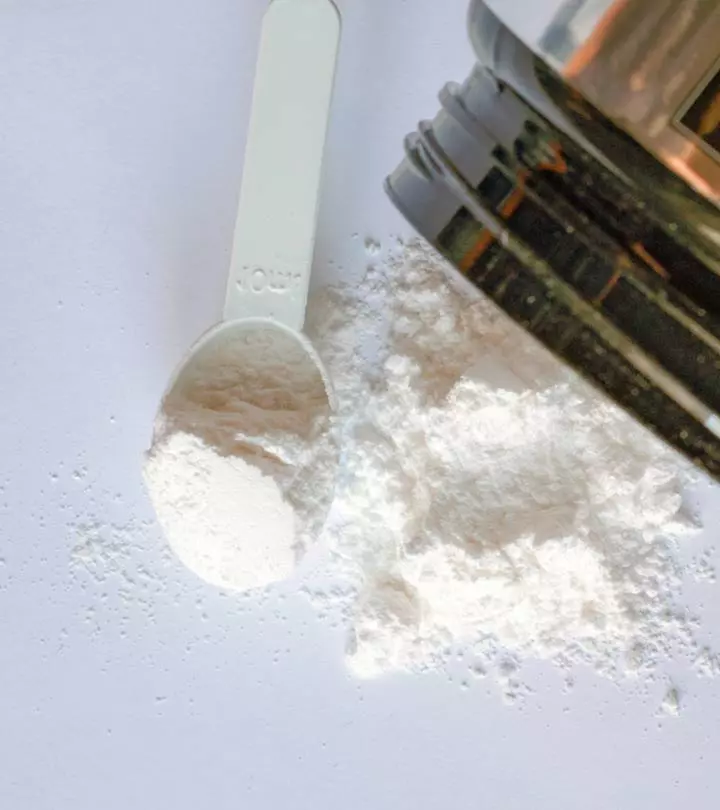

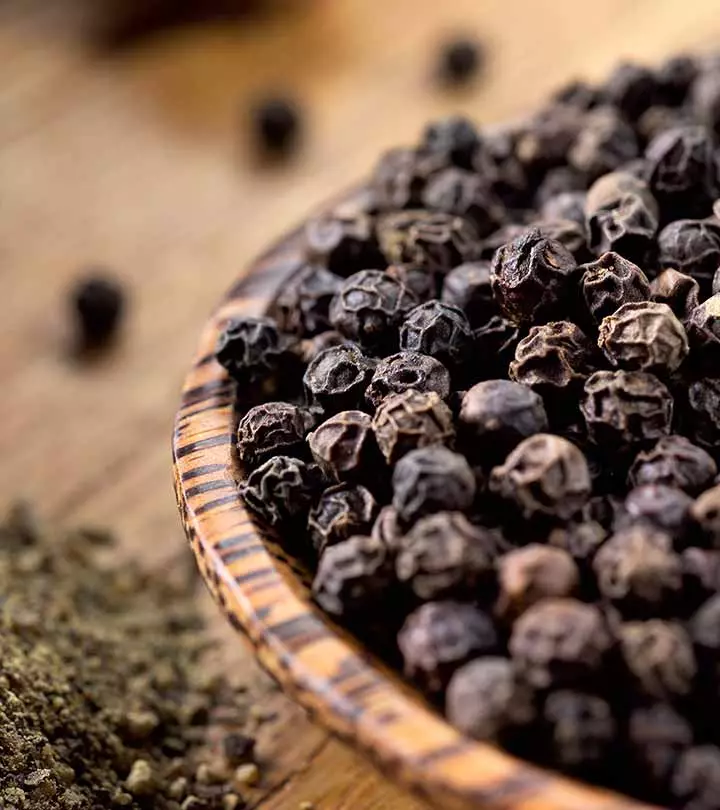

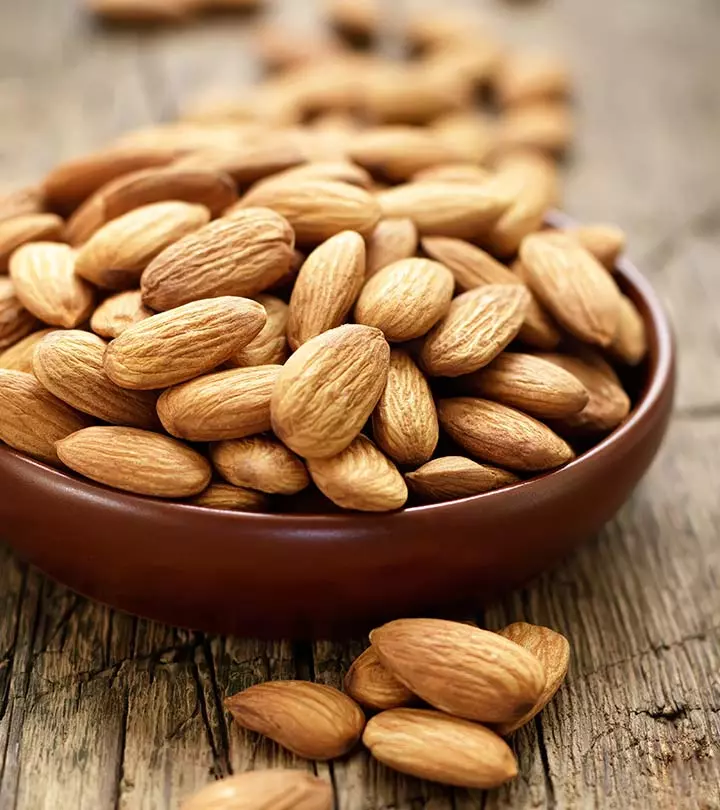
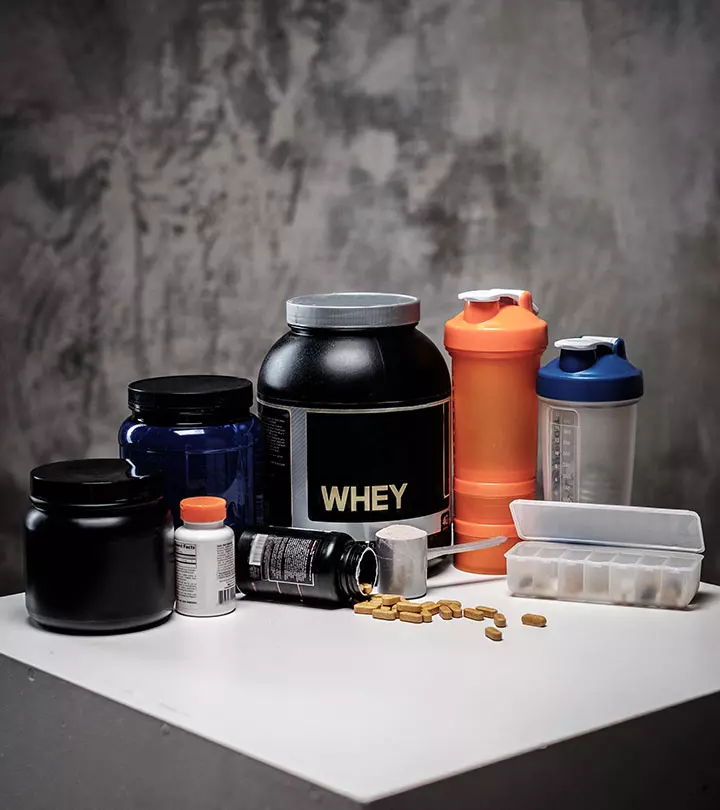














Community Experiences
Join the conversation and become a part of our empowering community! Share your stories, experiences, and insights to connect with other beauty, lifestyle, and health enthusiasts.